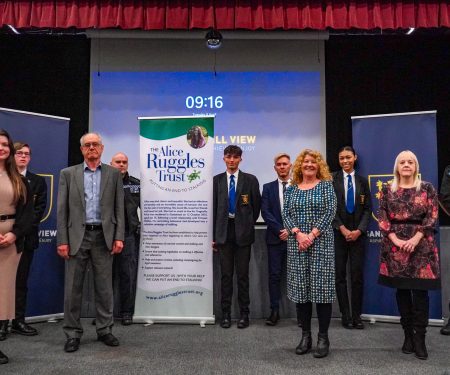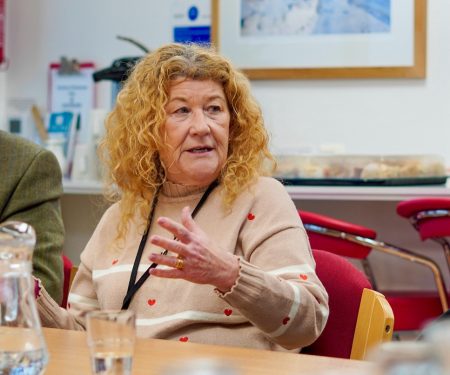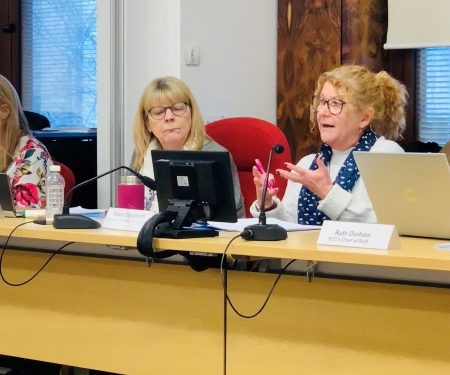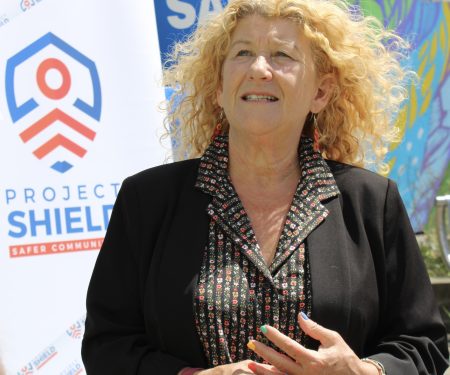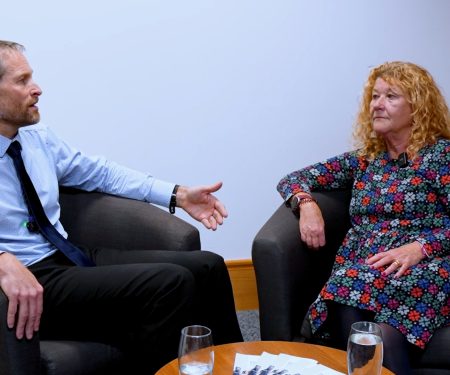Northumbria Police and Crime Commissioner is calling on the Government to roll-out an innovative Northumbria pilot scheme UK-wide – to support sexual violence and abuse victims and improve their experience of seeking justice.
Just £3.9 million annually in England and Wales is all it would cost the Government to offer free and independent legal advocacy to complainants of sexual violence and abuse.
Evidence in a report, published today revealed that the pilot substantially improved best practice in police and CPS responses, and improved the overall victim experience.
This scheme, originally visioned and developed by Dame Vera Baird KC, explored the reasons as to why a sexual offence case may fail. Dame Vera specifically discovered that disclosure and privacy issues are a huge concern to many. This evaluation of her work with Loughborough University highlighted that these issues are not only leading complainants to lose confidence in the justice system and withdraw their report from prosecutions, but disclosure issues are also leading to many cases not being charged.
It is hoped the findings of the evaluation report, by Dr Olivia Smith, a Criminology and Social Policy expert in Loughborough University’s School of Social Sciences and Humanities, will raise awareness and lead to positive changes across England and Wales.
The evaluation report considers the support provided to complainants of rape in Northumbria by independent legal advocates over an 18 month period. Advocates predominantly supported complainants to ensure their privacy rights were protected. The pilot came about due to concerns regarding over-intrusive requests for personal material from complainants on report of a sexual offence, a practice which does not occur in any other area of crime.
The report also considers the responses to an online survey of 586 victims of sexual offences in England and Wales (233 had reported to the police and 353 had not).
The victim survey data revealed that the current situation is untenable. Most victims that reported offences said they were treated sensitively by the police at the point of reporting, but the rest of the process was insensitive and unfair.
The survey found:
- 77% feel that victims are regularly cross-examined on their medical and sexual history (only 5% disagreed with this statement)
- Only 1 in 5 (21%) felt the criminal justice system treats victims with dignity
- Only 1 in 5 (21%) were satisfied with their criminal justice experience
- The survey reveals that only 12% of victims feel that police investigations are fair and proportionate.
Victims who did not report spoke about their fear of intrusive and victim-blaming practice, and those that did report confirmed in some instances this was the case.
One victim, who reported in 2017 and whose perpetrator was acquitted at trial, said: “My sexuality was used against me, naked photos of me were shown to the court, his barrister even said to the jury he had just made a ‘mistake’ and that he could be any of their sons, or brothers.”
The survey also found that getting a conviction did not necessarily mean victims were satisfied with the process. One victim stated: “The outcome was not worth what I put myself through”.
The report was commissioned by Dame Vera Baird KC whilst still in her role as Northumbria Police & Crime Commissioner, before leaving to take up the role of Victims’ Commissioner for England and Wales.
Northumbria Police and Crime Commissioner, Kim McGuinness, said: “The Government needs to do the right thing by sexual violence and abuse victims and a scheme like this would be a good start. Roll this out for just £3.9m a year, treat victims with respect and improve conviction rates. This cost is just a drop in the ocean when you factor in the savings that could be made on health and employment.
“It’s clear we need a change in how our criminal justice system responds to sexual offences. Quite simply a system that doesn’t meet the needs of a victim is a system that will allow offenders to get away with their actions and walk the streets.
“Making sure victims get the right legal help is crucial and that’s where the SVCA scheme comes in. It’s there to guide and support victims through what can be such an intimidating and daunting process, addressing concerns and stepping in to challenge requests for irrelevant personal data which can be used by defence teams to unreasonably discredit victims. Such behaviour leads to many victims losing confidence in the criminal justice process. This scheme could really shake-up the system, improving lives and preventing further crime.”
As part of the research, Dr Smith examined the pilot scheme, which ran from 2018 until March this year, and found it improved victims’ experiences of the criminal justice system.
Currently, victims in England and Wales have no right to legal support and occasionally rely on charities if they need help understanding the complicated rules around their rights.
Of the report and what she hopes it will achieve, Dr Smith said: “Around one in four women will be raped in England and Wales, but only around 17% will ever tell the police, and of those who do report, less than 2% will currently end in a conviction.
“Our research shows the huge emotional cost of reporting to police, and we need to find a way to change this. The changes that are needed are wide-reaching and must tackle, for example, racism and homophobia in the criminal justice system.
“One of the many changes should be the provision of legal advocacy, as it’s shown to work, and England and Wales are in danger of falling behind the rest of the world in how we treat sexual violence and abuse victims.
“This is about more than conviction rates. It is about dignified treatment regardless of outcome.”
The full report can be found here. It will be shared with the Criminal Justice Board and key MPs and Peers.
To find out more about the research recommendations please visit needisclear.org. It features resources for anyone who wants to take action and video content needisclear.org/survivors
Full report here: SVCA Evaluation – Final Report


